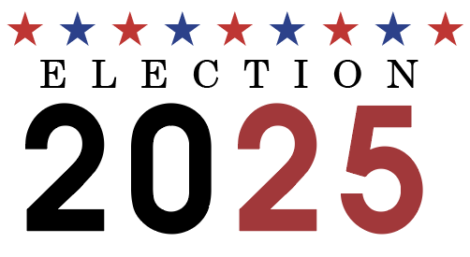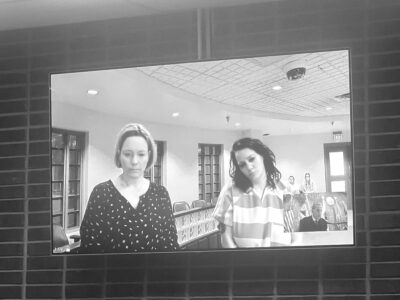Youngstown prepares for wastewater project downsized from $240M
YOUNGSTOWN — With Youngstown nearing a final agreement with the federal government to reduce the scope of a major wastewater improvement project, city council will consider legislation Wednesday to spend up to $275,000 for professional service contracts related to the work.
“It’s all for professional services such as expert witnesses and legal fees as we go through the final negotiations,” said Charles Shasho, the city’s deputy director of public works.
The city took the federal government to court seeking to reduce the size of the project because of escalating costs. Specifically, there is a dispute over a requirement in a 2014 consent decree signed by the city to build a 100-million-gallon-per-day wet weather facility. The structure would treat excess combined sewage during heavy rainstorms and then release the water.
In a March 15, 2024, motion by the city to reopen the consent decree, it insisted the facility is too large and expensive.
The project’s initial estimate was $62 million but is now more than $240 million, according to a Nov. 12 amended motion to modify the consent decree filing from attorney Terrence S. Finn of the Roetzel & Andress law
firm in Akron, which represents the city.
The city asked Judge Christopher A. Boyko of the U.S. District Court’s Northern District of Ohio in that motion to permit the consent decree to be amended for the construction of a wet weather facility that could treat only 80 million gallons of wastewater per day. The city hasn’t disclosed the cost of a smaller facility.
While the federal government had previously rejected a reduction in the scope of the work, Shasho said the federal government has agreed to the city’s request to build the facility to handle 80 million gallons a day.
“We still have to model the facility,” he said. “We might want to build it by the (wastewater treatment) plant or on the other side of the river. We have different variations of where to put it and the designs. But it’s a big deal to go from a 100-million to an 80-million facility.”
The city of Youngstown and the state of Ohio approved the modifications to the project, according to an April 22 status report filed with Boyko.
In that status report, the federal government asked to have until June 27 — which the judge approved — as the proposed changes are “currently going through” the federal Environmental Protection Agency and the Department of Justice for final review.
The report states: “The parties believe that an additional extension of the stay until June 27 would provide sufficient time for the parties to finalize the approvals of the proposed consent decree amendment, to continue negotiations over the stipulated penalties motion as well as promote the interests of judicial economy.”
Shasho said the sides are “close to settling,” but “it seems like (the federal government is) trying to move the goalposts.”
LEGISLATION
Because of the progress, Mayor Jamael Tito Brown is sponsoring legislation Wednesday for city council to authorize the board of control to spend up to $275,000 with “various vendors for support during the implementation of projects … mandated by the consent decree,” according to a proposed ordinance.
Those vendors, Shasho said, would be expert witnesses, law firms and a modeling expert.
The design work on the facility would take a couple of years, he said.
The board of control on March 26 approved a $2,964,094 contract with MS Consultants Inc. of Youngstown for preliminary design work to analyze and develop control measures for the wet weather facility.
City council voted April 16 to permit the board of control to “accept the consent decree amendment” in the federal case involving the city, the U.S. EPA and Ohio EPA on “a mutually agreed upon amendment to the combined sewer system long term control plan, which incorporates a ‘revised implementation schedule’ that will replace and supersede” a section of the original plan.
Work on the wet weather facility was supposed to start Feb. 7, 2022, and final design work was to be done by July 29, 2024.
A schedule attached with Finn’s Nov. 12 court filing shows the wet weather facility would be finished by Sept. 7, 2030.
Finn also wrote that the Ohio EPA approves of the city’s proposal to substitute the 100-million-gallon facility with an 80-million-gallon one.
The DOJ, which is representing the federal government in this case, on Nov. 12 repeated its demand for half of a $1,479,000 penalty from Youngstown to be paid to the federal EPA because the city “defaulted” on following through with federally mandated wastewater improvements. The penalty was first brought up in a Sept. 29, 2023, letter.
The city has refused to pay. The other half — $739,500 — could be sought by the Ohio EPA, which has declined to seek the penalty and has largely sided with Youngstown during the court proceedings.
In the April 22 status report, the parties wrote the city and the federal government “have exchanged correspondence regarding the United States’ stipulated penalties claim.”
The federal EPA originally had ordered the city in 2002 to do $310 million worth of work, but it was negotiated down to $160 million in 2014 with the expectation it would be finished in 20 years.
The city has tried to get that price down further, but federal authorities have refused those requests, resulting in the reopened court case.
The schedule attached to Finn’s Nov. 12 filing has all of the work done by Oct. 1, 2035.
Also, the city insists in court filings and interviews that if Youngstown complied with the mandates now the cost would be about $380 million to $400 million – well over twice what it agreed to do 11 years ago.
THE PHASES
The first phase was upgrades to the city’s wastewater treatment plant that have been completed.
The initial construction estimate was $37.3 million, but the city said it cost $70 million.
That work helped reduce the sewer overflows that would be part of the wet weather facility project, the city’s court filing states.
The wet weather facility was supposed to be phase two of the work.
The city approved $4.8 million on March 15, 2024, for design work for what was supposed to be the third phase. That phase is an interceptor sewer project to keep wastewater from 13 lines from flowing into Mill Creek Park’s Lake Glacier and Lake Cohasset.
Design work was supposed to start July 11, 2020, and construction was to begin April 5, 2024.
The city missed those deadlines, but plans a compressed schedule with that work finished by Oct. 16, 2032.
That phase was estimated to cost $47.7 million and will now cost $72.5 million to $87.2 million, according to city estimates.
The city’s board of control on April 24 hired Marucci & Gaffney Excavating Inc. of Youngstown for $90,000 to serve as “construction manager at risk” for the first two of four phases of an interceptor sewer project.
Marucci & Gaffney also will serve as the contractor on the first two phases with the price to be negotiated, Shasho said.
The first two phases are estimated to cost about $50 million though the city is looking to lower that amount.
The city hired MS Consultants of Youngstown last year for $4.8 million to design the interceptor. That work is finished — which designs about 90% of the project — with Marucci & Gaffney finishing the design and then doing the project.
Construction is expected to start early next year. Shasho said that phase will finish a year ahead of schedule.




